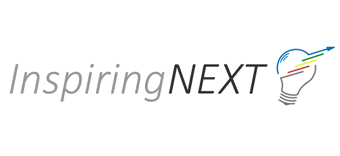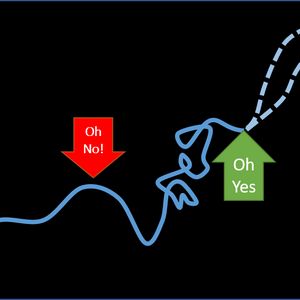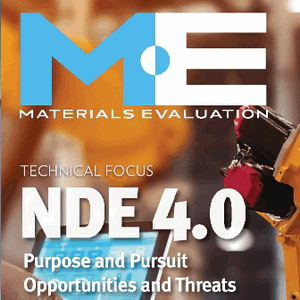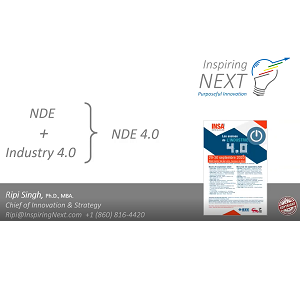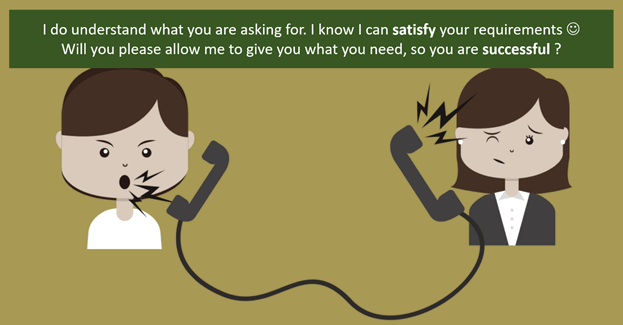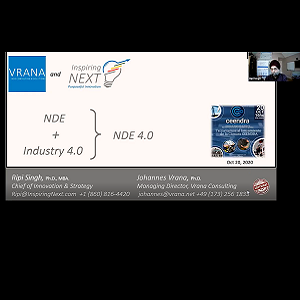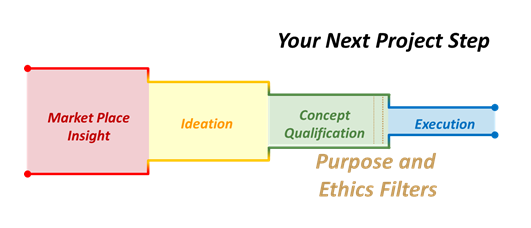How to Find the Path Forward?
The unprecedented, sudden changes wrought by the Covid-19 crisis have deep and wide implications across business and civil society.
Path Finders: Ripi Singh and Bob Beinstein
CONTEXT
In the space of a few weeks, almost all our habits and established methodologies vanished. How we work, how we shop, how we socialize, how we even live – all uprooted. Much has been written about the Covid-caused disruptions. Considered in aggregate, however, even the word “disruption” is insufficient. In fact, all these disruptions add up to dislocation, defined in one instance as “disruption of an established order”, and in an economic context as “a situation in which a person or thing, such as an industry or economy, is no longer working in the usual way or place”. Because of its unique impacts, previously unseen in modern society, there is no established path forward, no proven track toward a return to some semblance of normalcy.
SOLUTION
The Covid-19 dislocation calls for a new approach to discovering what’s next. An approach that leverages the power of collective intelligence, observations, and experience; that goes beyond necessary market insights and traditional brainstorming. Nerac and Inspiring Next joined hands to design one such approach, subsequently testing it with a group of diverse business leaders in CT. We held a series of three structured conversations, including some introspective homework, designed to help each participant find the right lens with which to examine their own future state. In the spirit of exploration, we refined the approach adapting it along the way. Outcomes were very different than what each participant had anticipated at the start of the exercise, with unexpected insights arising from the group’s dynamics. A follow up conversation with participants was eye-opening. Each had some valuable takeaways related to leadership of technology and/or people. They noted a blend of established good practices still applicable, some new norms that proved valuable, and a strong willingness to shed some well-established practices amidst the opportunity for beneficial change.
DESIGN
A quick summary of the first designed attempt is as follows:
Session 1: The group recorded observations each participant offered regarding the changes in behavior dynamics and leadership focus each had observed through their individual business lenses. We asked participants to consider their observations within the context of “Purpose” (e.g., the reason for their business to exist)
Session 2: Based on commonalities across Day 1 observations, primarily centered on leadership topics, we explored how business is changing with a focus on 1) People and 2) Technology. We also surfaced key unknowns each participant faced, and how each believe these gaps could be filled.
After the session closed, participants were sent “homework” to complete before Session 3 began.
Session 3: We focused on the insights participants brought from their homework. Discussion was brisk and candid, with some participants submitting written responses. By popular vote, the final session was extended an additional 30 minutes to enable each person to fully engage.
VALIDATION
To validate the approach and test the sensitivity, we applied this method with two additional groups made up of different participants. The second group contained individuals with no previous connections and with little commonality, who responded to an open invitation – these sessions created very little value for the participants. Outcomes were limited to identification of a few key areas of market insight, but with no clear, actionable path forward, likely because the group never gelled as a cohort. Our third exercise, with a select group focused on one specific industry, generated highly relevant, actionable insights into their emerging future. Takeaway actions centered on human considerations and the need for leadership to accept acceleration of the revolution in technology. This group is now collaborating on a white paper and outlining a roadmap for their industrial sector, seeking to reduce uncertainty and risk from external forces. A fourth application of this approach, currently ongoing, involves applying a similar methodology to undertake a real-time revision of a company’s 5-year growth plan, developed just prior to onset of Covid-19.
The mere fact that sufficient numbers of people are have been willing to participate in each of the attempted exercise is indicative of a keen awareness that we need new approaches moving into what comes next. And the commitment to continuing the conversations, demonstrated by the Group 3 participants, indicates the emerging approaches show promise. The favorable feedback we have received can be attributed to certain factors which have been combined into the designed approach, available for applications.
The Facilitated Cohort Approach
Our approach to finding the path forward in the times of Covid consists of three facilitated conversations aimed at creating an actionable follow-through plan:
- Session 1: Discovering a new Lens;
- Session 2: Observing the business world through this new Lens; and
- Session 3: Connecting the visible dots to layout a new path forward
A few key practices to increase take away value and achieve successful outcomes, include:
- Participants are from a single sector or closely related components of a sector, and share a purpose or some part of it (Shared Purpose)
- One of the facilitators understands that sector (Facilitator Skill)
- Facilitators help make sense of the seemingly disparate bits of knowledge that surface during the sessions, from their cross-industry perspectives (Facilitator Diversity)
- Facilitators convene and intentionally pivot after every conversation, defining relevant homework, and positioning for the next conversation (Adaptive and Agile Approach)
- Participants approach the homework with open minds and engage in a cohort style with a shared assignment (Participant Engagement)
- Conversations are held under Chatham House Rule to preserve privacy (Participant Trust)
Call to Action
If you would like to reduce uncertainty, ambiguity, and risk in your path forward, please call us. We can also tailor the proven approach to meet your specific needs, if and when required.
Your Facilitators
Dr. RIPI SINGH is a purposeful innovation coach, strategist, author, keynote speaker, and a lifelong learner of products, processes, and people development. He helps leaders adapt Industry 4.0; Society 5.0; & appreciate Sustainability; coaching everything Innovation from defining purpose to building mindset. He regularly serves university & industry bodies with forward looking thought process. Ripi has practiced innovation as a Corporate leader, an Engineering Professor, and on DoD SBIRs; in the USA, Europe, and Asia. That expertise is now being captured into the ISO 56000 on innovation management;
BOB BEINSTEIN has held technical and managerial roles in the commercial nuclear industry, managed environmental and smart growth programs in the Federal marketplace, and lead a diverse array of client service-related work in the engineering consulting business. He has served on the Sustainable Infrastructure Advisory Board for the Harvard Zofnass Program for Sustainable Infrastructure since its inception and on the Sustainability Leadership Board of a major engineering consulting firm. He has served as a guest lecturer at multiple universities and colleges and has mentored many who seek to forge careers around better ways of doing business in a resource challenged world.
SUBJECT MATTER EXPERT comes in as a co-facilitator based on participant industry and demographic. Our expertise includes – Materials, Food & Beverage, Medical devices and Healthcare, Regulatory, Aerospace, Energy, IT, and Manufacturing
